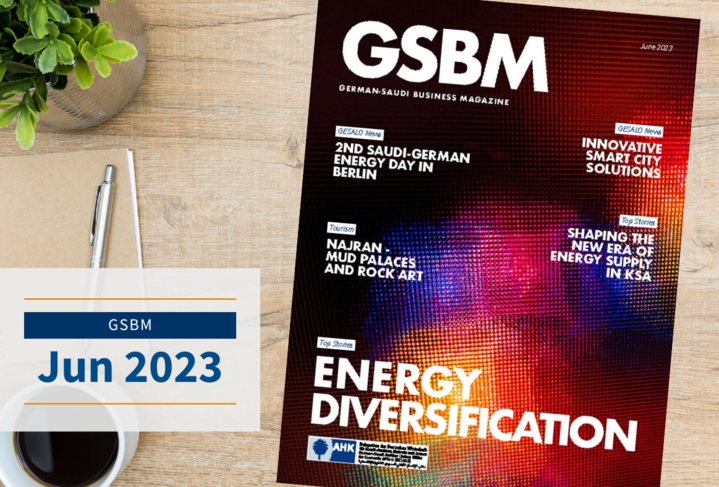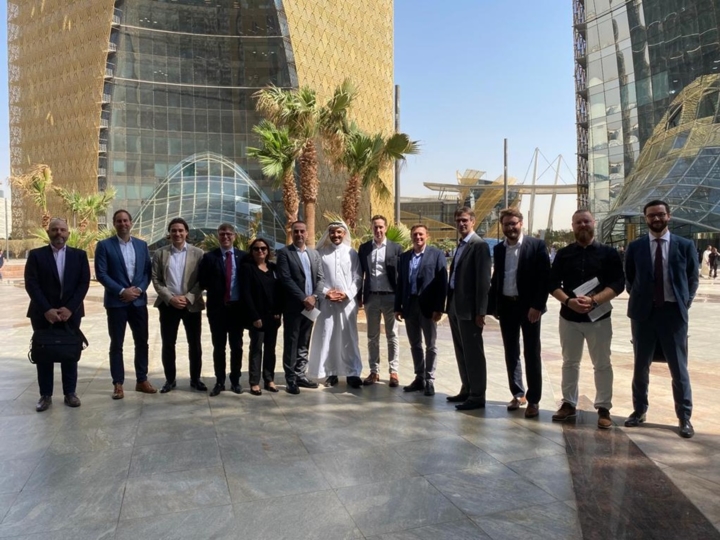
The Saudi Arabian chemical sector has now reached an annual capacity of about 118 million tons. Although Saudi Arabia already has a large market share, there are expansion plans to further increase production of natural gas and petrochemicals. Industry growth is driven by continuous market demand and is part of Saudi Arabia's Vision 2030.
Chemical projects in Saudi Arabia
In 2022, Saudi Arabia has completed over US$2 billion worth of chemical projects. Saudi Basic Industries Corporation (SABIC) announced that a new MEG (mono ethylene glycol) plant has been commissioned in Jubail, with an annual capacity of 700,000 tons.
The plant is part of a US$700 million project that also includes a DEG (diethylene glycol) plant with an annual capacity of 97,000 tons and a TEG (trimethylene glycol) plant with 5,700 tons, operated by Jubail United Petrochemical Company, a SABIC subsidiary.
The Saudi Arabian Mining Company (Ma'aden) has completed an ammonia plant at Ras Al Khair with an annual capacity of 1.2 million tons for US$ 892 million. It is the third Ma'aden ammonia plant at this location.
Chemical Projects
There is USD 3.6 billion worth of chemical projects under construction, according to the MEED Projects database. Of this, USD 1.3 billion is for a green hydrogen ammonia plant in the new NEOM development zone, which is being built at the southern cluster of the Oxagon Industrial and Port Zone.
The plant has an annual capacity of 1.2 million tons of ammonia. ThyssenKrupp is supplying electrolysis technology with a capacity of 2,000 megawatts. Electricity will be supplied by a USD 4 billion wind and solar complex with a capacity of 1.4 gigawatts from wind power and 2.9 gigawatts by photovoltaics.
MEED-Projects lists over 30 chemical projects worth USD 37 billion to be awarded in 2023 and 2024.
Energy partnership Saudi Arabia and Germany
Saudi Arabia and Germany have launched an energy partnership. Chemical products account for 27.1% of Germany's exports to Saudi Arabia and generate sales of around USD 1.42 billion.
In 2021, Germany launched its national hydrogen strategy and passed legislation to promote green hydrogen as a fuel in the country. Saudi Arabia, which has abundant renewable resources, is working closely with Germany to develop a green hydrogen source. The Kingdom has prioritized renewable energy sources to diversify the energy sector as part of its Vision 2030 strategy.
A memorandum of understanding between Prince Abdul Aziz bin Salman, the kingdom's energy minister, and Peter Altmaier, Germany's Economy and Energy Minister, reaffirms the goals of this partnership to create a green and diverse energy supply and achieve Saudi Arabia's net zero targets by 2060. The agreement also supports Germany's goal to reduce or end coal burning in the long term.
Development of ammonia cracking technology
Saudi Arabia's oil production company Aramco has partnered with Germany's Linde Engineering to jointly develop advanced ammonia cracking technology. This agreement aims to improve the process and build an economically viable supply chain for lower hydrocarbons. Both companies bring their extensive experience to the industry to create commercial opportunities and contribute to decarbonization.
Advanced technology to reduce CO2 emissions
In addition, SABIC, Linde, and BASF have teamed up to build Germany's first pilot plant for large electrically heated steam cracking furnaces. By using advanced technology and electricity from renewable sources, emissions from one of the most energy-intensive production processes in the chemical industry can be reduced by up to 90%. This project offers great potential for industries worldwide looking to reduce their CO2 emissions. While Linde will focus on design and development, BASF and SABIC will bear the investment costs. Finally, BASF will take over the operation of the plant.
As SABIC has close ties with German companies, exports of petrochemicals will likely increase, generating rising revenues for both countries.
GSBM June Edition 2023 | Topic: Energy
GESALO facilitated trips with the Ministry of Energy, the Ministry of Investment and the National Industrial Development...
Read full article
Kontakt
-
Mrs. Najah Alkutbi
Head of Market Entry - DEinternational DEinternational
+966 55 703 0376 alkutbi@ahk-arabia.com saudiarabien.ahk.de -
Mrs. Rawabi Basyouni
Head of German Desk Western Province DEinternational
+966 53 929 0004 basyouni@ahk-arabia.com saudiarabien.ahk.de -
Ms. Fatima Bakhsh
Head of German Desk in Eastern Province and Bahrain DE international
+966 55 930 0150 bakhsh@ahk-arabia.com saudiarabien.ahk.de






